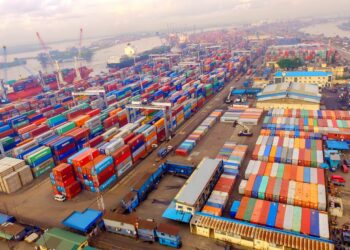Across the globe, some carbon-emitting activities in cities hit by the coronavirus have drastically reduced, as government policies and safety measures encourage actions to save lives and reduce citizens’ exposure to the deadly virus.
The World Health Organisation (WHO) on Wednesday declared the coronavirus a pandemic, given the alarming statistics of global spread and fatalities. According to the World Health Organization, a pandemic is declared when a new disease for which people do not have immunity spreads around the world beyond expectations.
The urgency with which governments around the world have put measures in place to curtail the spread and save lives has shown that the world is capable of stemming the tide of climate change if only its impact on lives was equated to the impact of the coronavirus.
Incidentally, some of the preventive and cautionary measures against the Covid – 19 such as the reduction in air travel and lesser commuting are inadvertently reducing global CO2 emissions, which is crucial to achieving a clean and healthy environment.
According to leading climate change campaigners, evidence mounts that the health crisis is reducing carbon emissions more than any policy.
The deadly virus outbreak, which has killed more than 4,000 people and infected more than 116,000, has caused alarm around the world. However, unlike the response to global heating, it has shown how political and corporate leaders can take radical emergency action on the advice of scientists to protect human wellbeing.
In China – the source of the disease and the world’s largest carbon emitter – the actions taken by authorities have inadvertently demonstrated that hefty 25 per cent carbon dioxide cuts can bring less traffic and cleaner air with only a small reduction in economic growth, according to a study by Carbon Brief.
If this trend continues, analysts say it is possible this will lead to the first fall in global emissions since the 2008-09 financial crisis. Even a slowdown in CO2 could buy time for climate action and, more importantly, inspire long-term behavioural changes – particularly in travel.
The virus has disrupted several events linked to the fossil fuel industry. In the past few weeks, the Geneva Motor Show was cancelled, after Switzerland banned all public gatherings of more than 1,000 people. In Houston, the giant annual CeraWeek gathering of oil and gas executives was called off, as was the Formula One grand prix in Shanghai.
On the advice of health authorities, millions of people are avoiding school journeys, shopping runs and office commutes. Tens of thousands of flights have been cancelled. Across much of central China, factories have been closed, with knock-on effects around the world.
More carbon savings expectedly will come from the cancellations of international conferences.
Global air traffic decreased by 4.3 per cent in February with cancellations of tens of thousands of flights to affected areas. But Rob Jackson, the chair of Global Carbon Project, said this would only be meaningful if it led to long-term behavioural change, particularly in aviation, which is one of the fastest-growing sources of emissions.
This is a one-off emergency measure, but the economic and carbon savings could prompt calls for this to become the norm every year.
How Long Will Gains Last?
The question is whether changes are temporary. China’s climate gains – so far estimated at about 200 megatonnes of CO2 – could be short-lived if factories later reopen and crank up production to make up for lost business. President Xi Jinping has indicated the government will provide extra stimulus packages to help the economy recover.
Some reports suggest this could prove counterproductive for the climate if this means ramping up coal production or relaxing environmental controls. The last time China suffered a major threat to GDP growth was during the 2008-9 financial crisis. Within a year, extra government spending ensured both the economy and CO2 were back on an upward trajectory.
Analysts say it is too early to know if coronavirus will push global CO2 emissions onto the downward path that is needed if the world is to have any hope of keeping global heating to a relatively safe level of 1.5C above pre-industrial levels.
Historically the most effective development in fighting climate change has been a halt to economic growth, and so far that has always been by accident rather than by design. However these uncontrollable developments are not an effective way to fight climate change, say experts.
“As with the rare instances when worldwide carbon pollution dipped in the past, driven by earlier economic shocks, diseases, and wars, emissions are likely to rise again as soon as the economy bounces back,” says James Temple from the MIT Technology Review. “In the meantime, if the virus leads to a full-blown global pandemic and economic crash, it could easily drain money and political will from climate efforts.”
As with the rare instances when worldwide carbon pollution dipped in the past, driven by earlier economic shocks, diseases, and wars, emissions are likely to rise again as soon as the economy bounces back. In the meantime, if the virus leads to a full-blown global pandemic and economic crash, it could easily drain money and political will from climate efforts.
Some have also suggested that the deadly virus could bring about long-lasting shifts in carbon-intensive behaviours, if people remain fearful of flying and cruise ships, or come to prefer remote working and virtual conferences.
But Gernot Wagner, a clinical associate professor at New York University’s Department of Environmental Studies, says most of the risks run against progress on climate change right now—and that “we should be very careful about any larger lessons we draw from this moment.”



